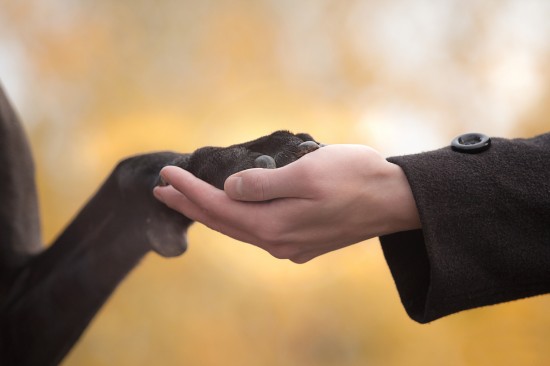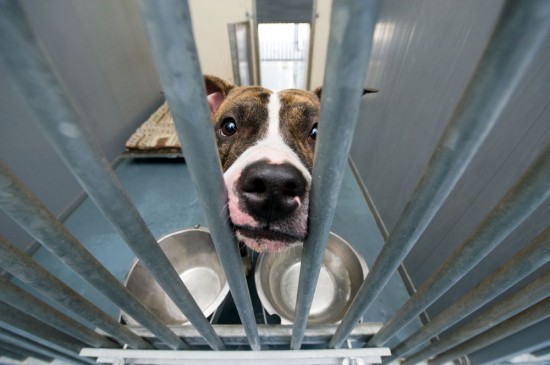
Psychiatric
Service Dogs are dogs that are specifically trained to assist individuals who suffer from psychiatric disabilities. These dogs are covered under the Americans with Disabilities Act (ADA). A Psychiatric Service dog is not seen as a pet in the public eye. They are working dogs and have access to public places. Service dogs can be especially helpful to Iraqi or Afghan war veterans.
The symptoms of Post Traumatic Stress Disorder include anger, irritability, startled responses, extreme anxiety, panic attacks, depression, social withdrawal, isolation, nightmares, self disturbances, and flashbacks. Service dogs act as companions and watch dogs for war veterans.
There are number of ways Psychiatric Service Dogs help. For example, dogs who are trained for individuals with PTSD are taught to prevent strangers from coming into close contact. They position themselves in front of their partners and prevent their personal space from being invaded. These dogs are especially helpful for war veterans. The dog is essentially trained and to watch the back of their partner. People need to remember that these dogs are not in any way guard dogs. They watch for strangers and alert their partners by movement or nudging them. This serves as a way to alert an individual suffering with PTSD of situations that may be upsetting or startling.
They also aid in providing reality checks for visual and auditory hallucinations. If a war veteran feels a strange person standing next to them or swears they hear noises, seeing the service dog helps to provide a reality check. As it has been reported that when war veterans are quietly sitting at home, they sometimes feel a strange individual standing next to him/her. The service dog serves as reassurance.
Adjusting to life after war is a challenge. It is important for family and friends of a veteran to understand that this dog is not a pet. This dog is an ally and a helper in adjusting to life back in the world around their partners. The service dog always accompanies their partner.
While there are no scientific studies that measure the effectiveness of service dogs in aiding with PTSD, veterans, their friends, and families have all reported remarkable gains in the day to day living of recent war veterans.
The Emotional Rewards of Volunteering with your Therapy Dog in a Hospital, Rehab Center, Library, Senior Care Center, or Your Own Counseling Office.
Therapy dogs have an impact on the quality of life for many individuals. These individuals include children, adults, and senior citizens. Therapy dogs are able to provide a positive catalyst in a time when an individual may be disabled, sick, lonely, injured, abused, or depressed.
Volunteering your therapy dog in a hospital, senior center, or rehabilitation center amongst other places, can be a rewarding experience for all individuals involved in the process. Therapy dog programs inspire learning and change for all involved. By volunteering your therapy dog, you are providing a commitment of bringing joy and inspiration to individuals when they need it most. Imagine the look of a sick child when your dog walks into their not-so-exciting hospital room. Imagine the look on the face of a senior citizen who may be bed bound and lonely, when they see your dog at their side. Or the look on the face of someone who has been spending months painfully rehabilitating from a horrific accident. You get the picture. If the image of a small child and your dog bonding does not make you smile, then what will? Therapy dogs can provide much needed relief in the harsh reality that some call everyday life.
In a sense, volunteering your therapy dog can bring about the same rewards to you as it will those individuals whose lives your therapy dog will touch. You can experience joy, hope, inspiration, and the power of healing. Volunteering your therapy dog provides a unique opportunity to bond even more with man’s best friend.
Just as you have bonded with your dog, providing the services of your therapy dog to those in need can aid in the healing process in a way that traditional medical treatments and rehabilitation programs can not even begin to provide. The unique bond between humans and animals serve as a unique opportunity to make a difference in the lives of thousands of individuals when they need it most.
 Why You Should Wait Until Your Dog Is At Least Two Before Breeding From Her
Why You Should Wait Until Your Dog Is At Least Two Before Breeding From Her
 Is The Coton De Tulear A Good Family Dog?
Is The Coton De Tulear A Good Family Dog?
 Problem Solving The Behaviour Of A Dog That Urinates Inside After Going Out
Problem Solving The Behaviour Of A Dog That Urinates Inside After Going Out
 Thirteen Interesting Facts About Your Dog’s Paws
Thirteen Interesting Facts About Your Dog’s Paws
 Shy Shelter Dogs: Step 1
Shy Shelter Dogs: Step 1
 The Most Common Breeds And Types Of Dogs Found In Uk Rehoming Shelters
The Most Common Breeds And Types Of Dogs Found In Uk Rehoming Shelters
 Why Dogs Act Strangely After Having Surgery
Why Dogs Act Stra
Why Dogs Act Strangely After Having Surgery
Why Dogs Act Stra
 Horses And Ponies Native To The British Isles
Horses And Ponies
Horses And Ponies Native To The British Isles
Horses And Ponies
 Thinking Like A Cat - 5 Easy Ways To Enrich Your Cat’s Home Life
Thinking Like A C
Thinking Like A Cat - 5 Easy Ways To Enrich Your Cat’s Home Life
Thinking Like A C
 Japanese Akita Temperament And Training
Japanese Akita Te
Japanese Akita Temperament And Training
Japanese Akita Te
 Underground Fence Training for Your Dog
Underground Fence Training for Your Dog
If a t
Underground Fence Training for Your Dog
Underground Fence Training for Your Dog
If a t
Copyright © 2005-2016 Pet Information All Rights Reserved
Contact us: www162date@outlook.com